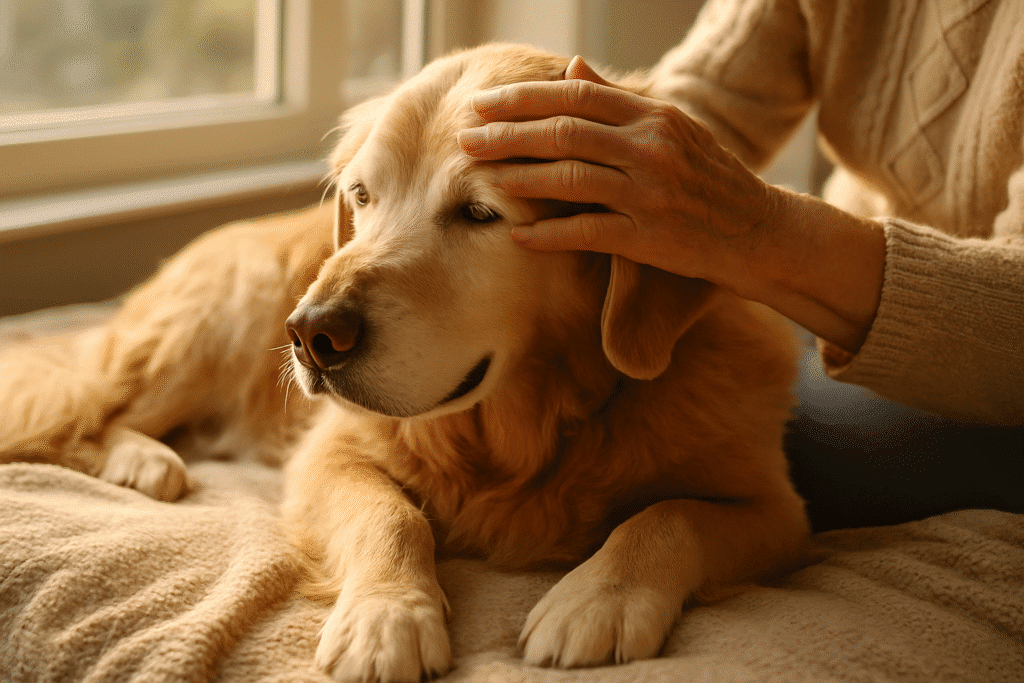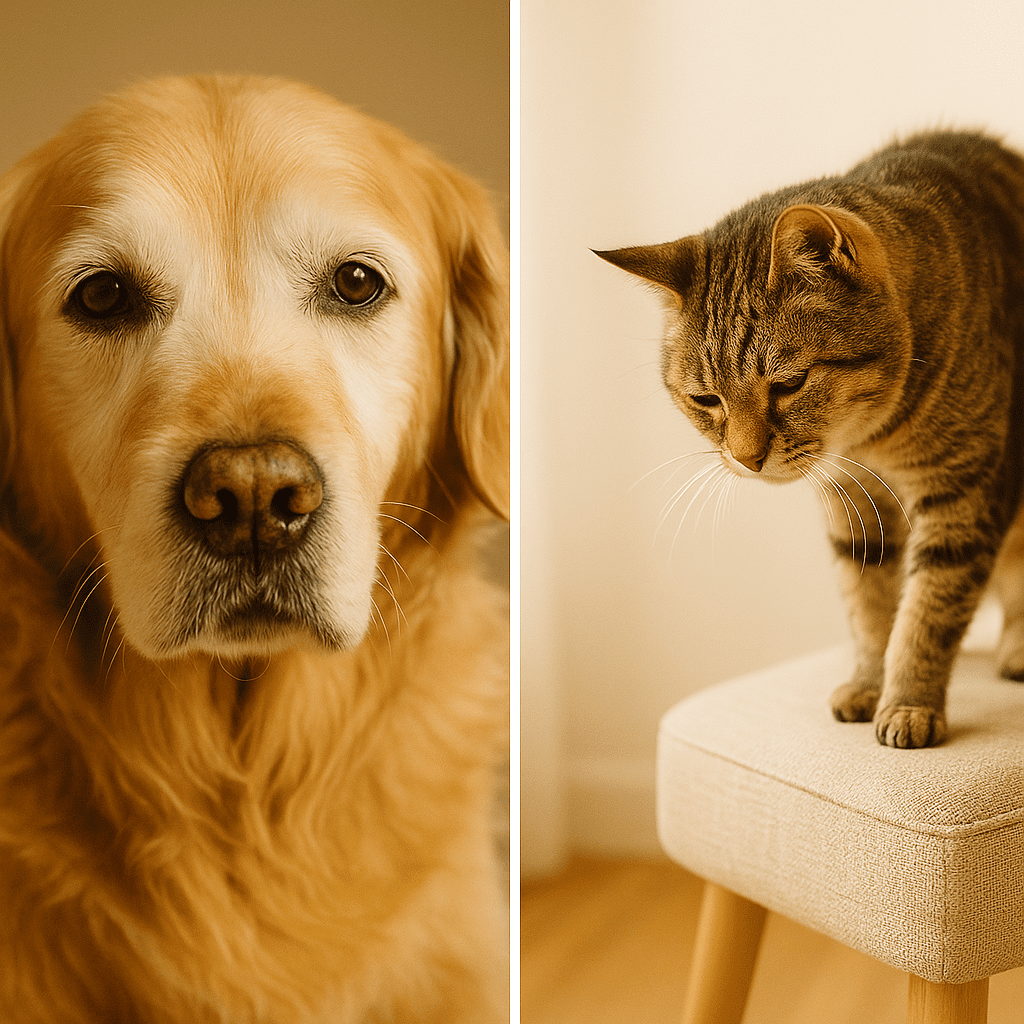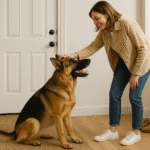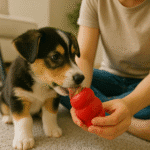Golden Years, Golden Care: A Wellness Guide for Your Senior Pet

Watching our beloved furry companions grow older is a bittersweet journey. The once boundless energy may mellow, the muzzle may grey, but the love and companionship only deepen. As your dog or cat enters their senior years, their needs change, and adapting their care is crucial for maintaining their quality of life, health, and happiness. At PettyPups, we’re dedicated to helping you provide the best for your pet through every life stage. This guide offers essential wellness tips for your cherished senior friend.
Recognizing the Signs of Aging in Your Pet
The age at which a pet is considered “senior” varies by breed and size (larger dogs age faster). However, common signs that your pet is entering their golden years can include:
- Decreased energy levels or more time spent sleeping
- Greying around the muzzle, face, or other parts of the body
- Changes in vision or hearing (e.g., bumping into things, not responding to calls)
- Stiffness, difficulty jumping, or lameness, especially after rest
- Weight gain or loss
- Changes in appetite or water consumption
- Dental issues like bad breath, tartar buildup, or difficulty chewing
- Changes in behavior, such as increased anxiety, confusion, or irritability
- Lumps, bumps, or skin changes
Regular observation is key to noticing these subtle shifts. If you’re unsure, a consultation with your vet can provide clarity.
Nutrition for Senior Pets: Adapting Their Diet
As pets age, their metabolism often slows down, and their nutritional needs change. A diet formulated for senior pets can make a significant difference:
- Calorie Control: Senior pets are often less active and prone to weight gain. Obesity can exacerbate issues like arthritis and heart disease. Look for foods with lower calorie density.
- High-Quality Protein: Essential for maintaining muscle mass, but some senior pets with kidney issues may need carefully managed protein levels. Consult your vet.
- Increased Fiber: Can aid in digestion and help with weight management.
- Joint Supplements: Ingredients like glucosamine, chondroitin, and omega-3 fatty acids can support joint health. Many senior formulas include these.
- Palatability & Digestibility: Older pets may have a reduced sense of smell or taste, or more sensitive stomachs. Choose easily digestible and appealing foods.
- Hydration: Ensure constant access to fresh water. Some senior pets, especially cats, may benefit from wet food to increase their water intake.
Always transition to a new food gradually over 7-10 days to avoid digestive upset. Learn more about pet nutrition basics on our site.

Exercise & Mobility for Older Companions
While they might not be chasing balls with the same vigor, regular, gentle exercise is vital for senior pets to maintain muscle tone, joint flexibility, a healthy weight, and mental stimulation.
- Moderate Walks: Shorter, more frequent walks are often better than one long, strenuous one for senior dogs.
- Low-Impact Activities: Swimming (if your dog enjoys it and it’s safe) is excellent for joints. Gentle indoor play can keep cats active.
- Warm-Up & Cool-Down: Just like humans, senior pets benefit from a gentle warm-up before activity and a cool-down period.
- Listen to Your Pet: Never force exercise if they seem tired or in pain. Watch for signs of overexertion.
- Mobility Aids: Ramps for getting onto furniture or into cars, orthopedic beds, and non-slip flooring can greatly improve their comfort and safety. Slings or harnesses can help support dogs with significant mobility issues.
Veterinary Care: Essential Check-ups for Seniors
Regular veterinary care becomes even more critical as your pet ages. Most vets recommend bi-annual (every six months) check-ups for senior pets. These visits allow for:
- Early Detection: Identifying age-related diseases like arthritis, kidney disease, heart conditions, cancer, or cognitive dysfunction in their early stages often leads to better management and outcomes.
- Baseline Monitoring: Regular bloodwork, urinalysis, and other diagnostic tests can track changes over time.
- Dental Care: Dental disease is common in older pets and can lead to pain and other systemic health issues. Professional cleanings and home care are crucial.
- Pain Management: If your pet is suffering from arthritis or other painful conditions, your vet can discuss pain relief options.
- Vaccination & Parasite Control: Your vet will advise on appropriate schedules based on your senior pet’s health and lifestyle.
Don’t hesitate to discuss any changes you’ve noticed in your pet’s behavior or physical condition with your veterinarian.
Maintaining Mental & Emotional Well-being
Keeping your senior pet mentally stimulated and emotionally secure is just as important as their physical health.
- Interactive Toys & Puzzle Feeders: Keep their minds engaged and can make mealtime more interesting.
- Consistent Routine: Senior pets often thrive on predictability.
- Quality Time: Gentle petting, grooming sessions, or simply sitting with them provides comfort and strengthens your bond.
- Patience with Cognitive Changes: Some older pets may experience cognitive dysfunction (similar to dementia in humans). Be patient with any confusion or changes in habits. Your vet can offer advice.
- Maintain Socialization (if appropriate): Gentle, positive interactions with familiar people and calm pets can be beneficial, but don’t force it if they seem stressed.
Creating a Comfortable Home Environment
Simple adjustments to your home can make a big difference in your senior pet’s comfort and safety:
- Orthopedic Beds: Provide good support for aging joints.
- Non-Slip Surfaces: Use rugs or runners on slippery floors to prevent falls.
- Easily Accessible Food & Water: Consider raised bowls if they have neck or back discomfort. Ensure bowls are in easily reachable locations.
- Ramps or Stairs: Help them access favorite spots like the couch, bed, or car.
- Consistent Layout: Avoid rearranging furniture frequently if your pet has vision problems or cognitive decline.
- Temperature Control: Senior pets can be more sensitive to extreme heat or cold.
Conclusion: Cherishing Every Moment
Caring for a senior pet requires extra attention, patience, and love, but the rewards of sharing their golden years are immeasurable. By understanding their changing needs and adapting your care, you can help them live a comfortable, happy, and dignified life. Enjoy every purr, every gentle tail wag, and every quiet moment together. For more resources on specific conditions or further advice, explore the PettyPups wellness library.



